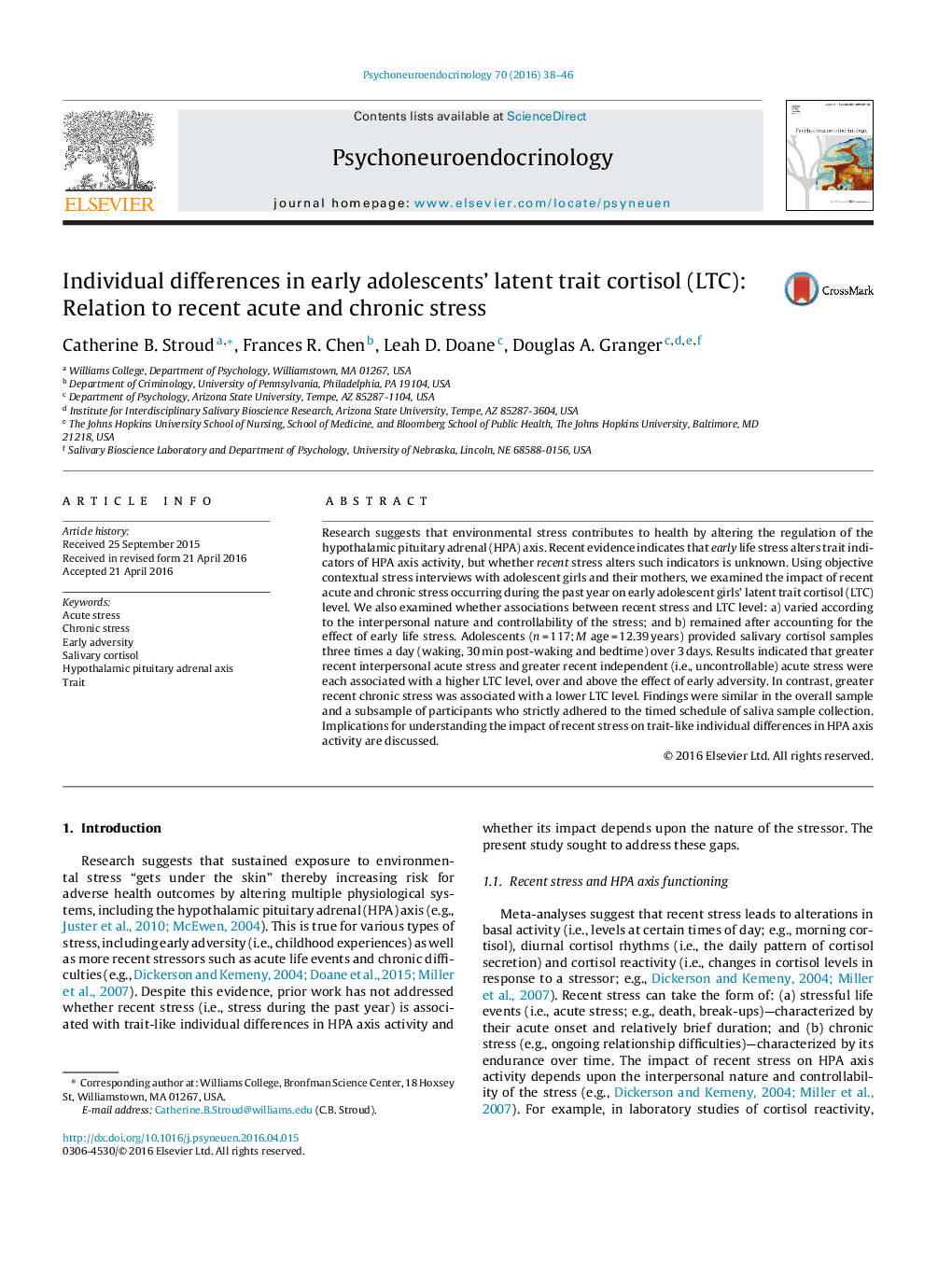| Article ID | Journal | Published Year | Pages | File Type |
|---|---|---|---|---|
| 337219 | Psychoneuroendocrinology | 2016 | 9 Pages |
•A latent trait indicator of cortisol was identified.•Contextual objective stress interviews assessed recent acute and chronic stress.•Chronic stress was related to individual differences in trait cortisol.•Interpersonal and independent acute stress were each related to trait cortisol.•Acute stress related to trait cortisol, adjusting for the effect of early stress.
Research suggests that environmental stress contributes to health by altering the regulation of the hypothalamic pituitary adrenal (HPA) axis. Recent evidence indicates that early life stress alters trait indicators of HPA axis activity, but whether recent stress alters such indicators is unknown. Using objective contextual stress interviews with adolescent girls and their mothers, we examined the impact of recent acute and chronic stress occurring during the past year on early adolescent girls’ latent trait cortisol (LTC) level. We also examined whether associations between recent stress and LTC level: a) varied according to the interpersonal nature and controllability of the stress; and b) remained after accounting for the effect of early life stress. Adolescents (n = 117; M age = 12.39 years) provided salivary cortisol samples three times a day (waking, 30 min post-waking and bedtime) over 3 days. Results indicated that greater recent interpersonal acute stress and greater recent independent (i.e., uncontrollable) acute stress were each associated with a higher LTC level, over and above the effect of early adversity. In contrast, greater recent chronic stress was associated with a lower LTC level. Findings were similar in the overall sample and a subsample of participants who strictly adhered to the timed schedule of saliva sample collection. Implications for understanding the impact of recent stress on trait-like individual differences in HPA axis activity are discussed.
